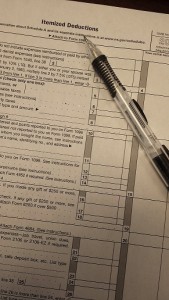Are you trying to determine if you should use the standard or itemized deductions? I’ve been asked by several people “At what point do I start itemizing my deductions?”
In some cases people  believe it has to do with marriage or age that determines which option you should use. In actuality the determination is by how much it will save you on taxes. Typically an individual or married couple only itemize if they own their personal residence and have a mortgage against it; however, there are a few exceptions to that. Some itemized deductions are not limited while others are. Once you have figured what the itemized deductions are that you have then you compare that total to the standard deduction to see which is higher giving you a lower tax liability.
believe it has to do with marriage or age that determines which option you should use. In actuality the determination is by how much it will save you on taxes. Typically an individual or married couple only itemize if they own their personal residence and have a mortgage against it; however, there are a few exceptions to that. Some itemized deductions are not limited while others are. Once you have figured what the itemized deductions are that you have then you compare that total to the standard deduction to see which is higher giving you a lower tax liability.
Below is a partial list of expenses that qualify as itemized deductions, I’ve noted which are limited beside them. Keep in mind when reviewing the list that this is not a complete list and all items must be paid in the year you are trying to deduct them.
Medical expenses – includes only what you have paid that was not reimbursed or paid by insurance (limited)
Taxes – this includes real estate taxes, personal property taxes, and sales tax or state income taxes paid
Mortgage interest – interest paid to purchase the home, or interest on home equity debt (may be limited depending on the size of the mortgage)
Investment interest – interest paid to purchase investment property such as stocks, bonds or mutual funds (limited to investment income)
Charitable contributions – donations made to a not-for-profit entity to see if an organization is eligible to receive tax-deductible charitable contributions go to http://www.irs.gov/Charities-&-Non-Profits/Exempt-Organizations-Select-Check
Estate taxes imposed on taxable income
Gambling losses (limited by gambling winnings)
Employee business expenses – includes items you spend for your job that are not reimbursed by your employer such as travel, meals, supplies, small tools, profession books and journals (limited)
Job hunting expenses (limited)
Job-related education (limited)
Legal fees associated with the protection of income (limited)
Professional or union dues (limited)
Safe deposit box fees (limited)
Tax preparation fees (limited)
Uniforms – should be clothing that can only be used for work and not suitable for street wear (limited)
If you have other expenses that you would like to know if you can deduct talk to your tax preparer. I’ve been asked by many clients about expenses that are personal and many are not deductible, but some are, so my recommendation is to ask. Worse case you are told no, but best case is you save yourself some money on taxes.
The Wassman CPA Services website and blog is meant to offer general information to our readers. The information provided is not intended to replace or serve as a substitute for any accounting, tax or other professional advice, consultation or service. You should contact Wassman CPA Services for advice concerning specific matters prior to making any decisions.
